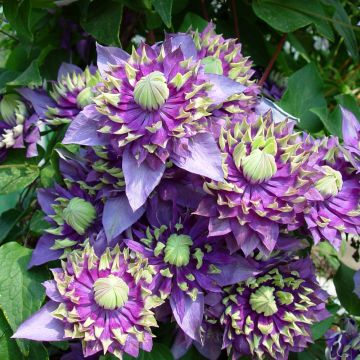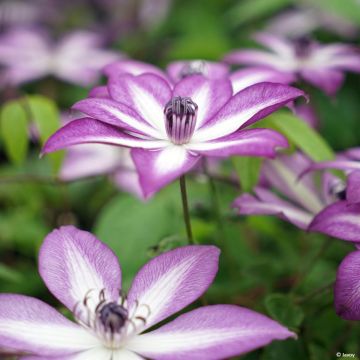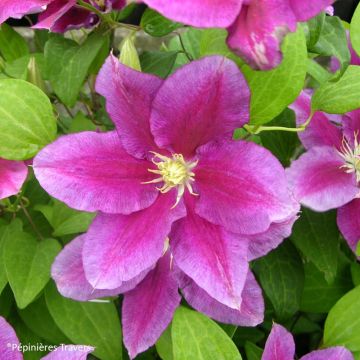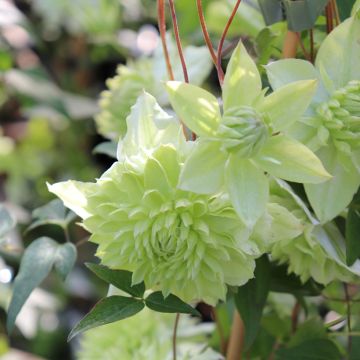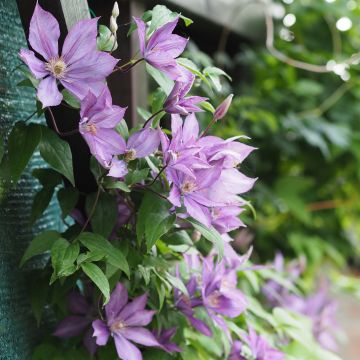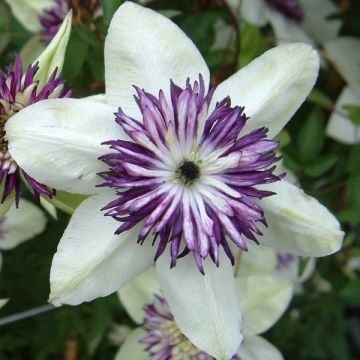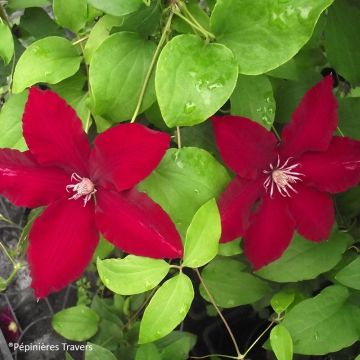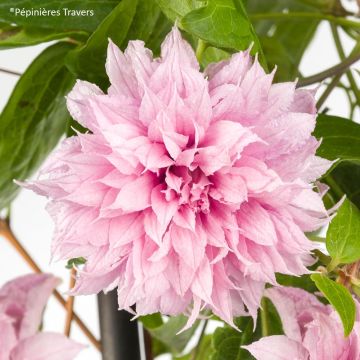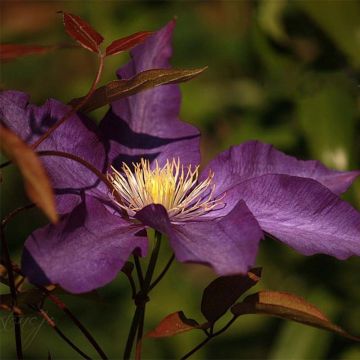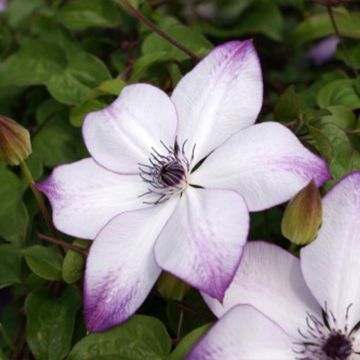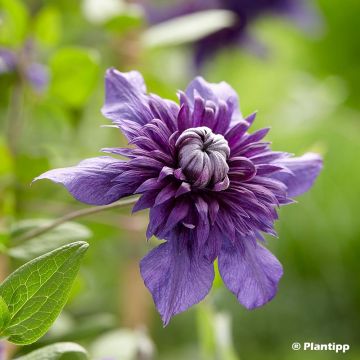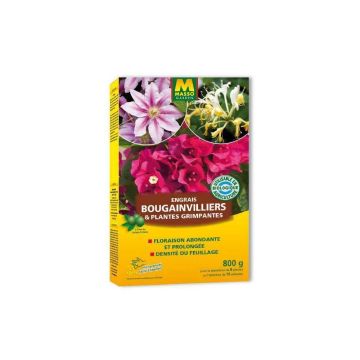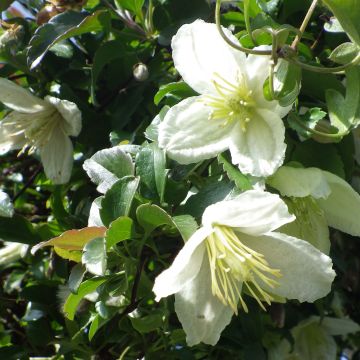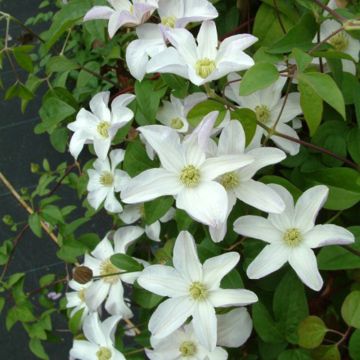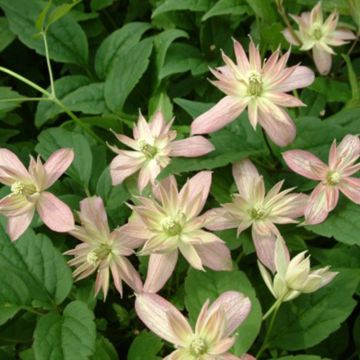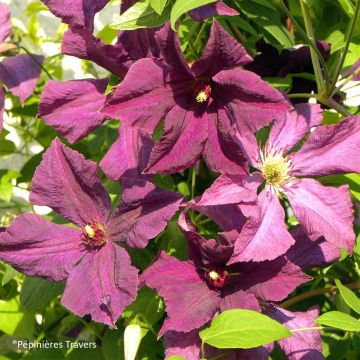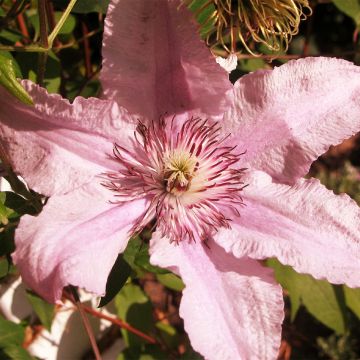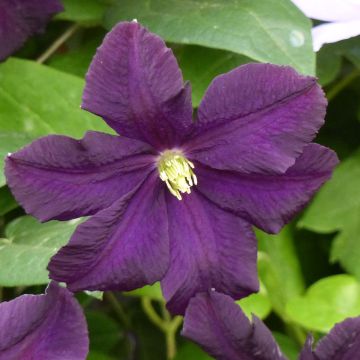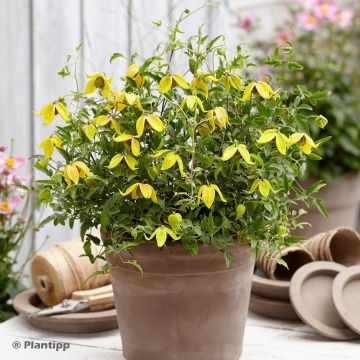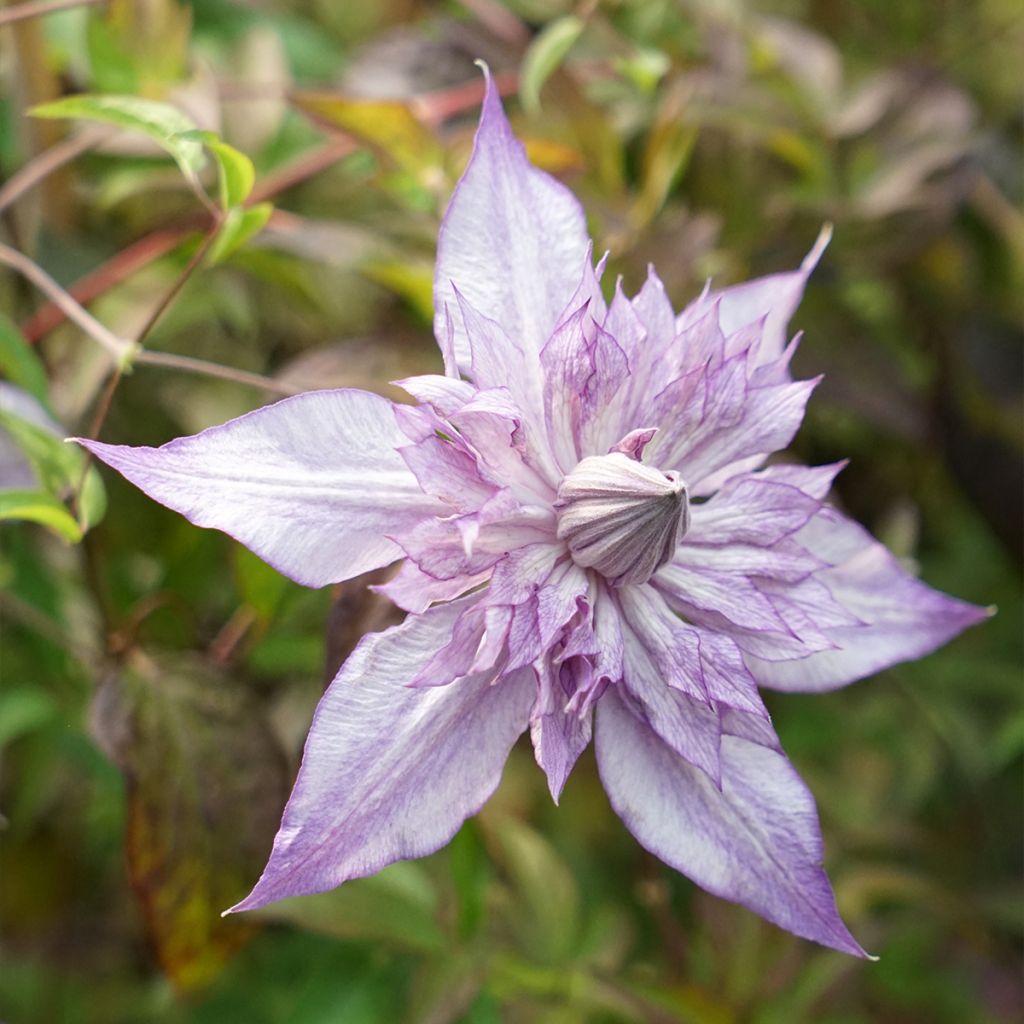

Clématite - Clematis Lady Kyoko
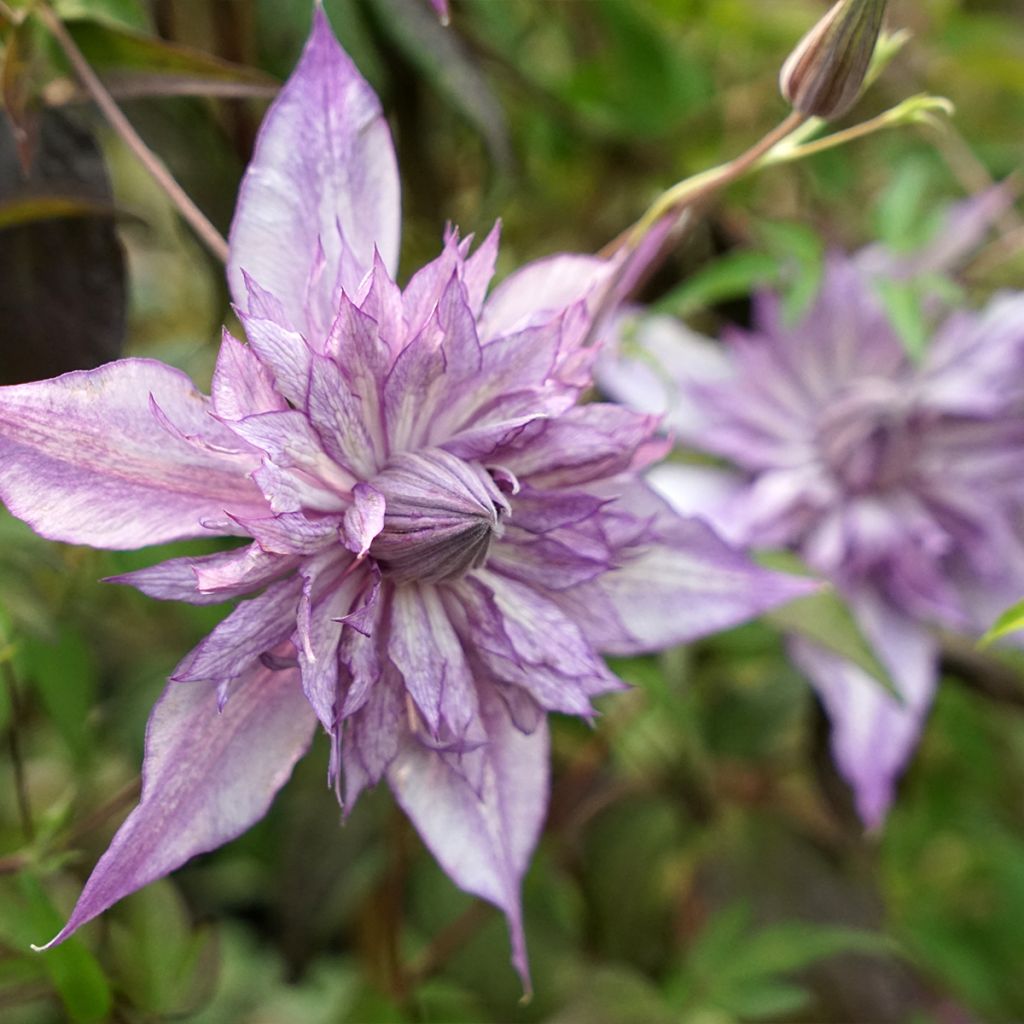

Clématite - Clematis Lady Kyoko
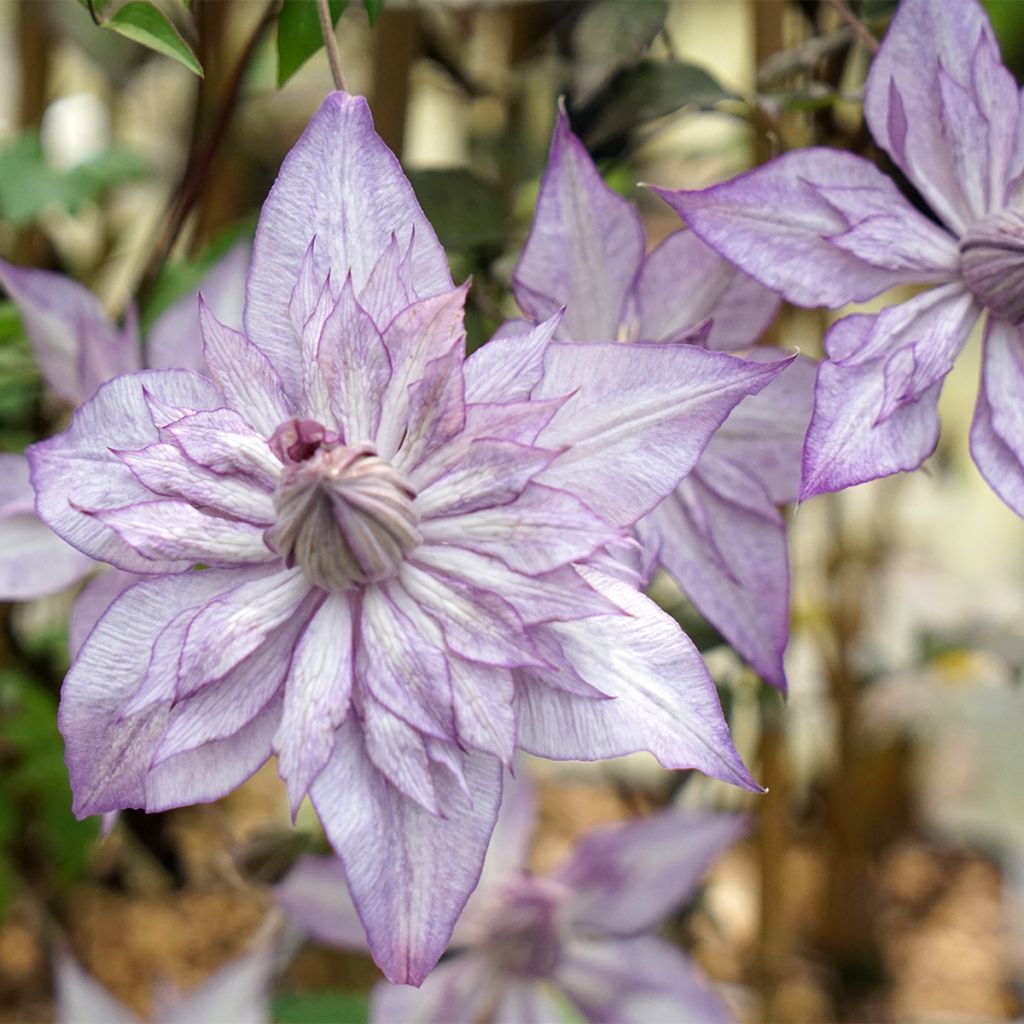

Clématite - Clematis Lady Kyoko
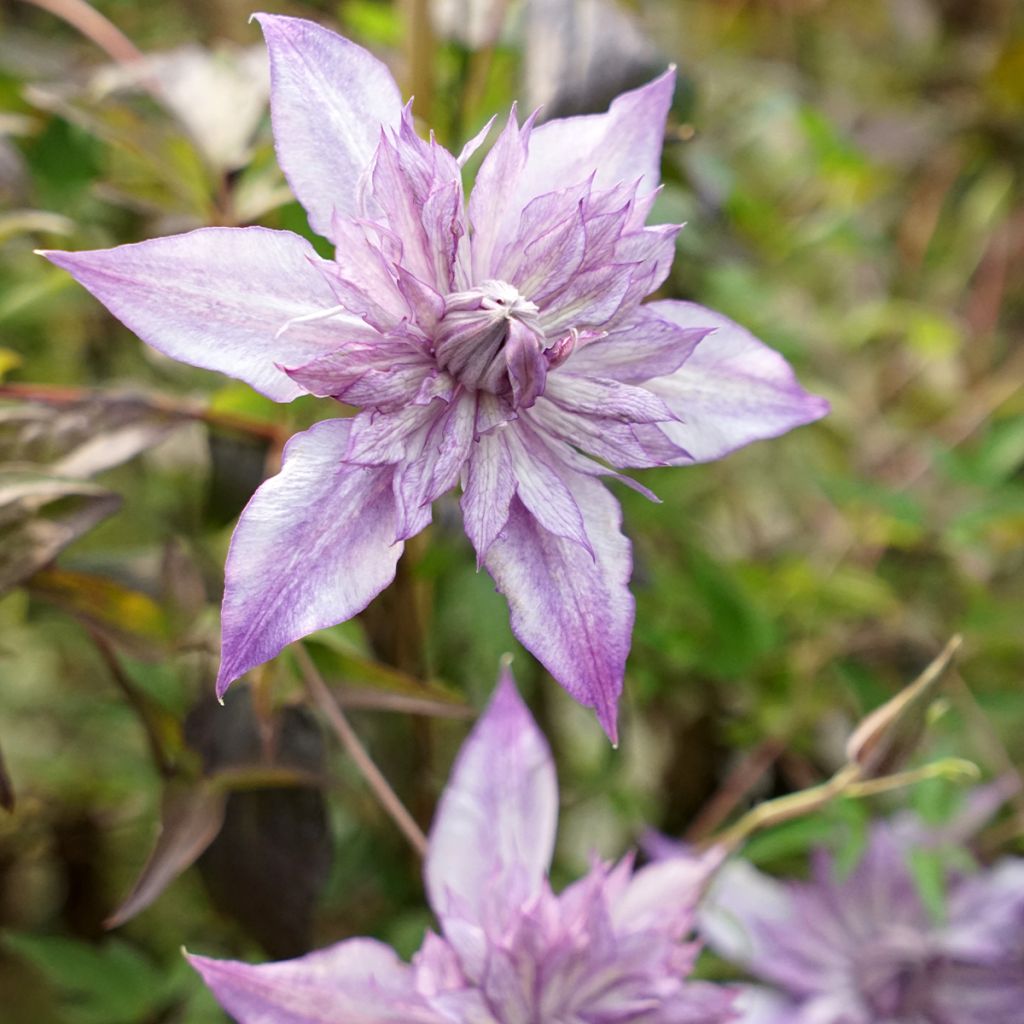

Clématite - Clematis Lady Kyoko
Clematis Lady Kyoko
Clematis x florida Lady Kyoko
Flowering Clematis, Florida Clematis
Special offer!
Receive a €20 voucher for any order over €90 (excluding delivery costs, credit notes, and plastic-free options)!
1- Add your favorite plants to your cart.
2- Once you have reached €90, confirm your order (you can even choose the delivery date!).
3- As soon as your order is shipped, you will receive an email containing your voucher code, valid for 3 months (90 days).
Your voucher is unique and can only be used once, for any order with a minimum value of €20, excluding delivery costs.
Can be combined with other current offers, non-divisible and non-refundable.
Why not try an alternative variety in stock?
View all →This plant carries a 6 months recovery warranty
More information
We guarantee the quality of our plants for a full growing cycle, and will replace at our expense any plant that fails to recover under normal climatic and planting conditions.
Would this plant suit my garden?
Set up your Plantfit profile →
Description
Clematis 'Lady Kyoko', recently obtained in Japan, is a small climbing plant which is very unusual both in the shape of its flowers and in their colour. Its medium-sized flowers open in several stages, starting from a large central bud that opens into an increasingly double star, composed of slender petals ending in a point. Each petal is finely veined in lavender to violet on a white background. This wonderful little climber flowers from late spring to autumn. Of modest size, but fast-growing, it is well suited for pots.
The genus Clematis belongs to the Ranunculaceae family. 'Lady Kyoko' is a very recent hybrid cultivar, born in Japan and named in honour of its breeder's daughter. Its flower truly embodies the refined spirit that inhabits each of the Japanese varieties. 'Lady Kyoko' has the genes of Clematis florida, a species native to Japan (despite its name, which simply means that it flowers a lot!), its other parent is unknown. This variety flowers in waves between May-June and October. It belongs to the group of clematis that flower on the current year's shoots.
Lady Kyoko clematis is a woody, climbing perennial plant, with short stems, which will not exceed 3 m high, with a spread of 1 m². The deciduous, dark green leaves are composed of ovate to lanceolate leaflets 3 to 7 cm (1 to 3in) long and 1.5 to 5 cm (1 to 2in) wide. The double flowers are composed of numerous elliptical, tapered tepals. The centre is occupied by a large bud surrounded by smaller petals, over a collar of wider petals. The flower becomes veined in shades of mauve, purple and violet as it matures. According to some sources, the flowers are slightly fragrant. This clematis clings to the support or host plant with tendrils. This variety has good hardiness (-15 °C). Its leaves dry up and fall off in winter.
Plant your clematis alongside climbing roses or small climbers to extend the flowering of your walls and pergolas until the end of summer. It is a genus rich in diversity, with varieties in all colours, shapes and sizes. Take advantage of their ease of cultivation to give your garden a romantic and bohemian touch. The sublime 'Lady Kyoko' variety will be perfect trained on a wall, and very beautiful in a bush with pink flowers. Thanks to its modest size, it will easily fit in a small garden and will be quite happy in a pot on a balcony or next to an entrance door, over a small structure to welcome visitors with its unusual flowering.
Report an error about the product description
Clematis Lady Kyoko in pictures
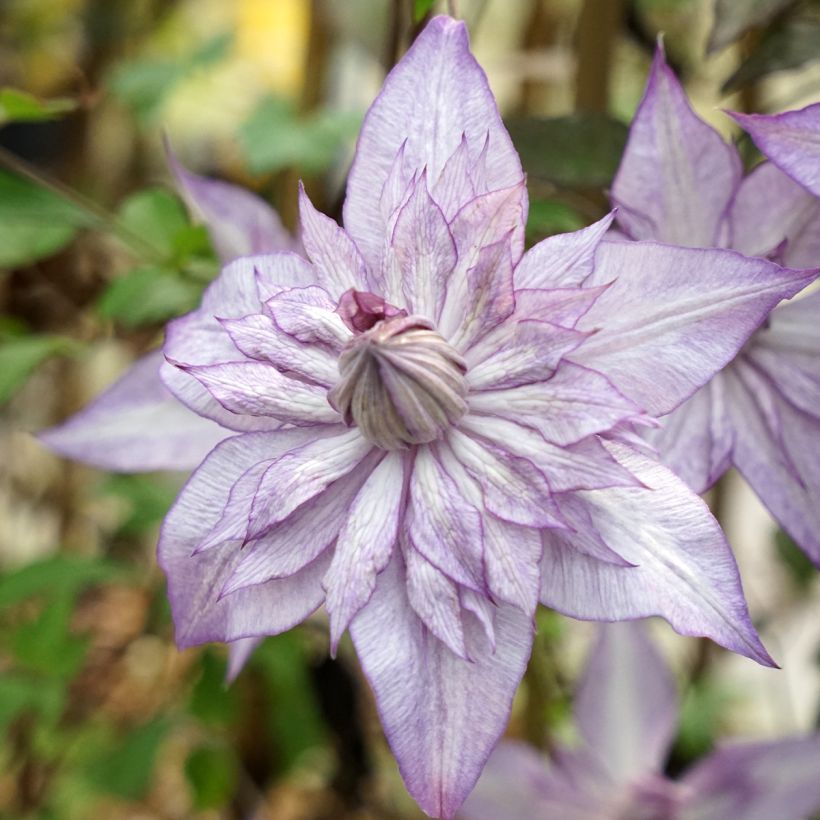

Plant habit
Flowering
Foliage
Safety measures
Botanical data
Clematis
x florida
Lady Kyoko
Ranunculaceae
Flowering Clematis, Florida Clematis
Cultivar or hybrid
ingestion
Cette plante est toxique si elle est ingérée volontairement ou involontairement.
Ne la plantez pas là où de jeunes enfants peuvent évoluer, et lavez-vous les mains après l'avoir manipulée.
Pensez à conserver l'étiquette de la plante, à la photographier ou à noter son nom, afin de faciliter le travail des professionnels de santé.
Davantage d'informations sur https://plantes-risque.info
Other Clematis Florida
View all →Planting and care
Choose a bright, sunny or partially shaded exposure for Lady Kyoko. In sunny exposure, shade the base of your plant with ground cover or a perennial geranium. Clematises like to have their feet cool. Plant your clematis by covering the root ball with 3 cm (1in) of soil, in a dug area of 20 cm (8in), lightened with good compost. In the first few weeks, water abundantly and regularly. Clematises attach themselves thanks to their tendrils. To promote their growth, give them a trellis support or help them climb the trunk of a tree by placing a mesh. Clematises also like to grow freely on neighbouring plants.
We advise you not to overwater, as stagnant water can cause the development of clematis wilt at the base.
Planting period
Intended location
Care
This item has not been reviewed yet - be the first to leave a review about it.
Similar products
Haven't found what you were looking for?
Hardiness is the lowest winter temperature a plant can endure without suffering serious damage or even dying. However, hardiness is affected by location (a sheltered area, such as a patio), protection (winter cover) and soil type (hardiness is improved by well-drained soil).

Photo Sharing Terms & Conditions
In order to encourage gardeners to interact and share their experiences, Promesse de fleurs offers various media enabling content to be uploaded onto its Site - in particular via the ‘Photo sharing’ module.
The User agrees to refrain from:
- Posting any content that is illegal, prejudicial, insulting, racist, inciteful to hatred, revisionist, contrary to public decency, that infringes on privacy or on the privacy rights of third parties, in particular the publicity rights of persons and goods, intellectual property rights, or the right to privacy.
- Submitting content on behalf of a third party;
- Impersonate the identity of a third party and/or publish any personal information about a third party;
In general, the User undertakes to refrain from any unethical behaviour.
All Content (in particular text, comments, files, images, photos, videos, creative works, etc.), which may be subject to property or intellectual property rights, image or other private rights, shall remain the property of the User, subject to the limited rights granted by the terms of the licence granted by Promesse de fleurs as stated below. Users are at liberty to publish or not to publish such Content on the Site, notably via the ‘Photo Sharing’ facility, and accept that this Content shall be made public and freely accessible, notably on the Internet.
Users further acknowledge, undertake to have ,and guarantee that they hold all necessary rights and permissions to publish such material on the Site, in particular with regard to the legislation in force pertaining to any privacy, property, intellectual property, image, or contractual rights, or rights of any other nature. By publishing such Content on the Site, Users acknowledge accepting full liability as publishers of the Content within the meaning of the law, and grant Promesse de fleurs, free of charge, an inclusive, worldwide licence for the said Content for the entire duration of its publication, including all reproduction, representation, up/downloading, displaying, performing, transmission, and storage rights.
Users also grant permission for their name to be linked to the Content and accept that this link may not always be made available.
By engaging in posting material, Users consent to their Content becoming automatically accessible on the Internet, in particular on other sites and/or blogs and/or web pages of the Promesse de fleurs site, including in particular social pages and the Promesse de fleurs catalogue.
Users may secure the removal of entrusted content free of charge by issuing a simple request via our contact form.
The flowering period indicated on our website applies to countries and regions located in USDA zone 8 (France, the United Kingdom, Ireland, the Netherlands, etc.)
It will vary according to where you live:
- In zones 9 to 10 (Italy, Spain, Greece, etc.), flowering will occur about 2 to 4 weeks earlier.
- In zones 6 to 7 (Germany, Poland, Slovenia, and lower mountainous regions), flowering will be delayed by 2 to 3 weeks.
- In zone 5 (Central Europe, Scandinavia), blooming will be delayed by 3 to 5 weeks.
In temperate climates, pruning of spring-flowering shrubs (forsythia, spireas, etc.) should be done just after flowering.
Pruning of summer-flowering shrubs (Indian Lilac, Perovskia, etc.) can be done in winter or spring.
In cold regions as well as with frost-sensitive plants, avoid pruning too early when severe frosts may still occur.
The planting period indicated on our website applies to countries and regions located in USDA zone 8 (France, United Kingdom, Ireland, Netherlands).
It will vary according to where you live:
- In Mediterranean zones (Marseille, Madrid, Milan, etc.), autumn and winter are the best planting periods.
- In continental zones (Strasbourg, Munich, Vienna, etc.), delay planting by 2 to 3 weeks in spring and bring it forward by 2 to 4 weeks in autumn.
- In mountainous regions (the Alps, Pyrenees, Carpathians, etc.), it is best to plant in late spring (May-June) or late summer (August-September).
The harvesting period indicated on our website applies to countries and regions in USDA zone 8 (France, England, Ireland, the Netherlands).
In colder areas (Scandinavia, Poland, Austria...) fruit and vegetable harvests are likely to be delayed by 3-4 weeks.
In warmer areas (Italy, Spain, Greece, etc.), harvesting will probably take place earlier, depending on weather conditions.
The sowing periods indicated on our website apply to countries and regions within USDA Zone 8 (France, UK, Ireland, Netherlands).
In colder areas (Scandinavia, Poland, Austria...), delay any outdoor sowing by 3-4 weeks, or sow under glass.
In warmer climes (Italy, Spain, Greece, etc.), bring outdoor sowing forward by a few weeks.






























